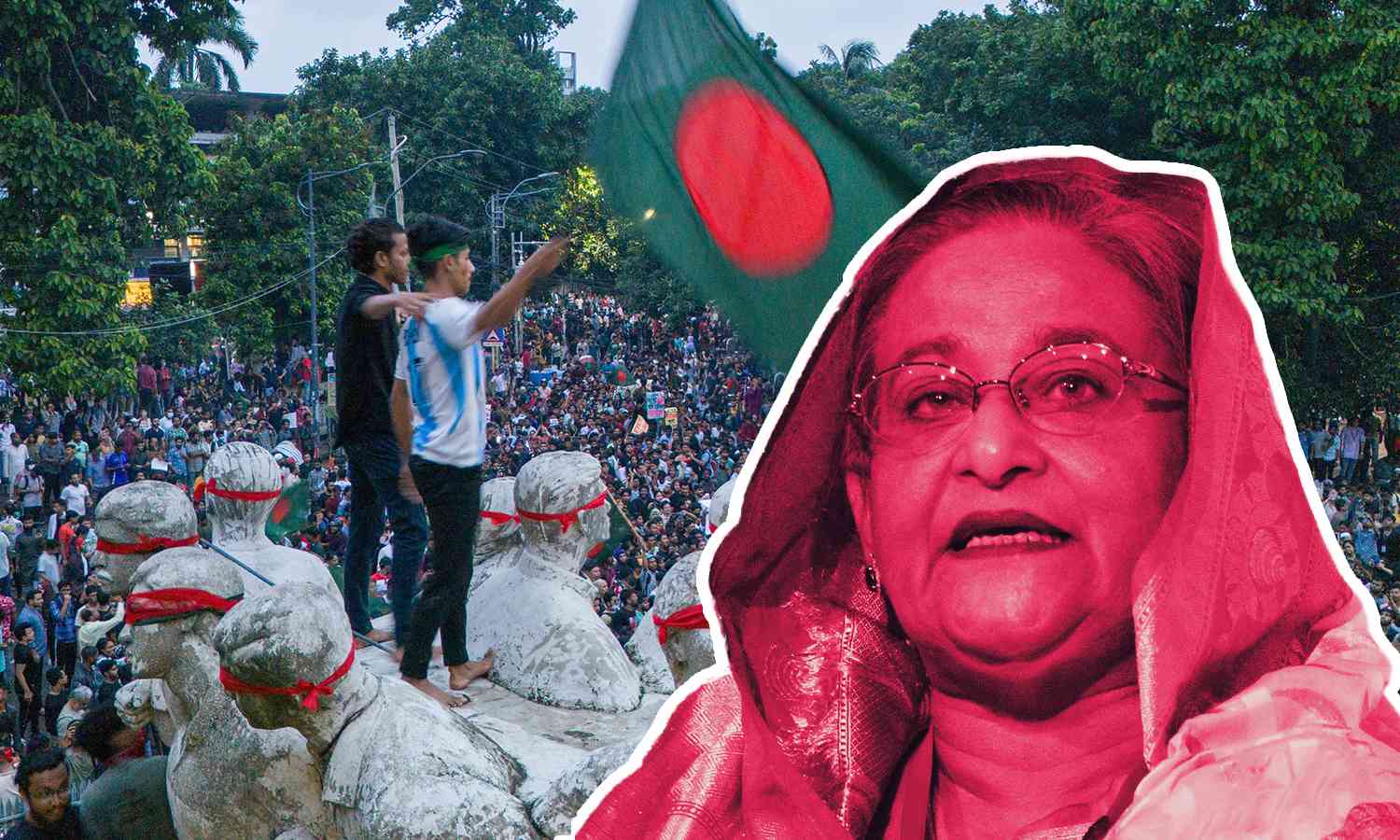Breaking News: Bangladesh's Sheikh Hasina Resigns and Flees Amid Mass Protests
In a dramatic turn of events, Prime Minister Sheikh Hasina has resigned and left Bangladesh following unprecedented nationwide protests. The demonstrations, sparked by deep-seated grievances over a controversial job quota system and other issues, have resulted in widespread unrest and violence. Hasina's resignation comes in the wake of intense clashes between protesters and ruling party supporters, which have led to numerous deaths and injuries. The unrest has also prompted the government to impose a curfew and restrict mobile internet access across the country to curb further violence. The protests began with demands for the resignation of Hasina's government, which was accused of corruption and mismanagement. The situation escalated significantly, with protestors clashing with police and attacking government buildings, mosques, and private properties. The violence reached a peak when demonstrators organized a “March to Dhaka” to amplify their demands.
In response to the growing chaos, Hasina has reportedly flown out of the country, leaving behind a situation that remains volatile and unresolved. The resignation and flight of the Prime Minister mark a significant moment in Bangladesh's political landscape, with the future of the country now uncertain as the protests continue.
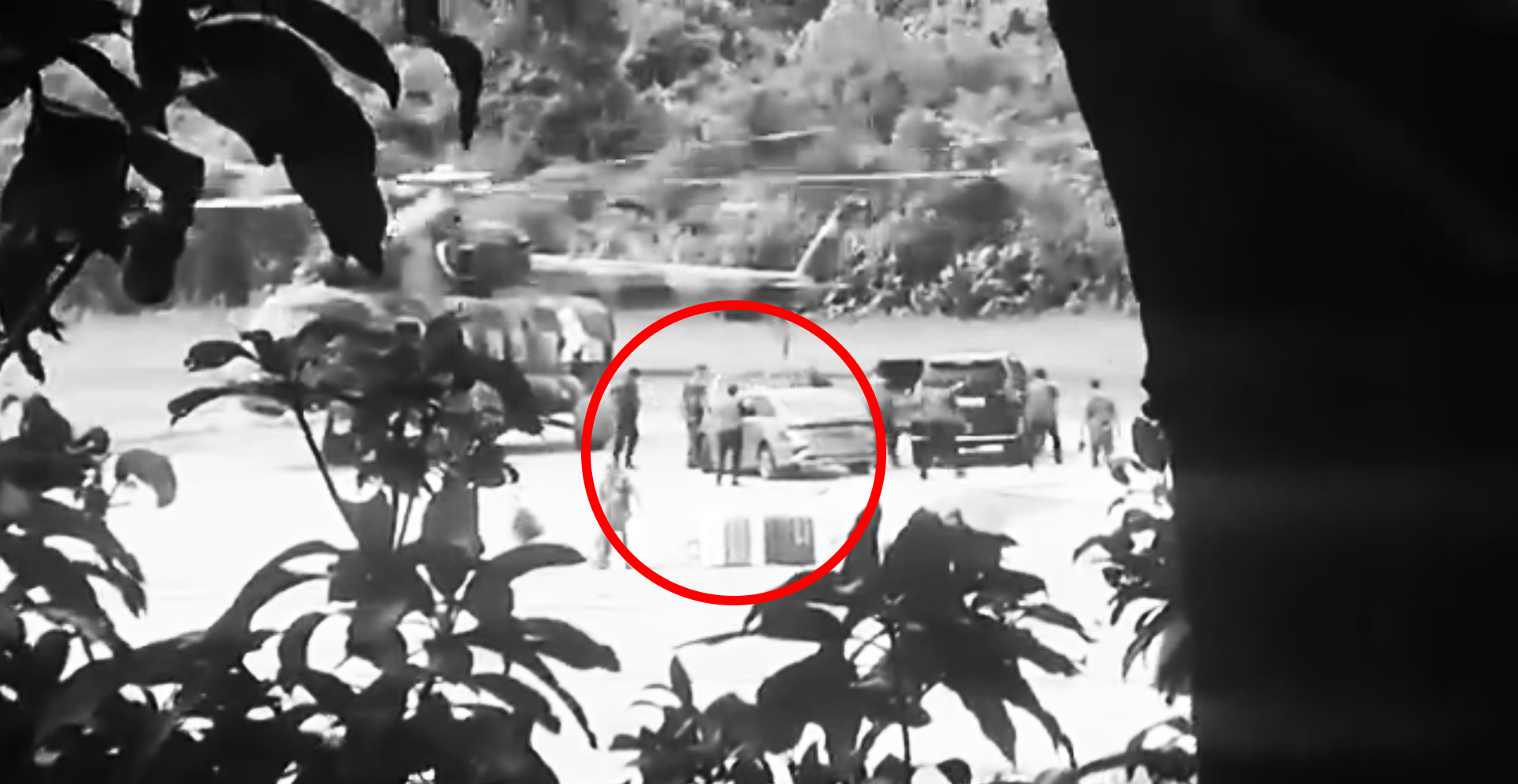
What Happened So Far:
Violent Clashes Erupt in Bangladesh, Over 200 reported Dead and Hundreds Injured
Dhaka, Bangladesh - Nearly 200 people, including 14 policemen, have been killed and hundreds more injured in fierce clashes between protesters and ruling party supporters across Bangladesh. The violence has led authorities to cut off mobile internet services and impose an indefinite nationwide curfew.
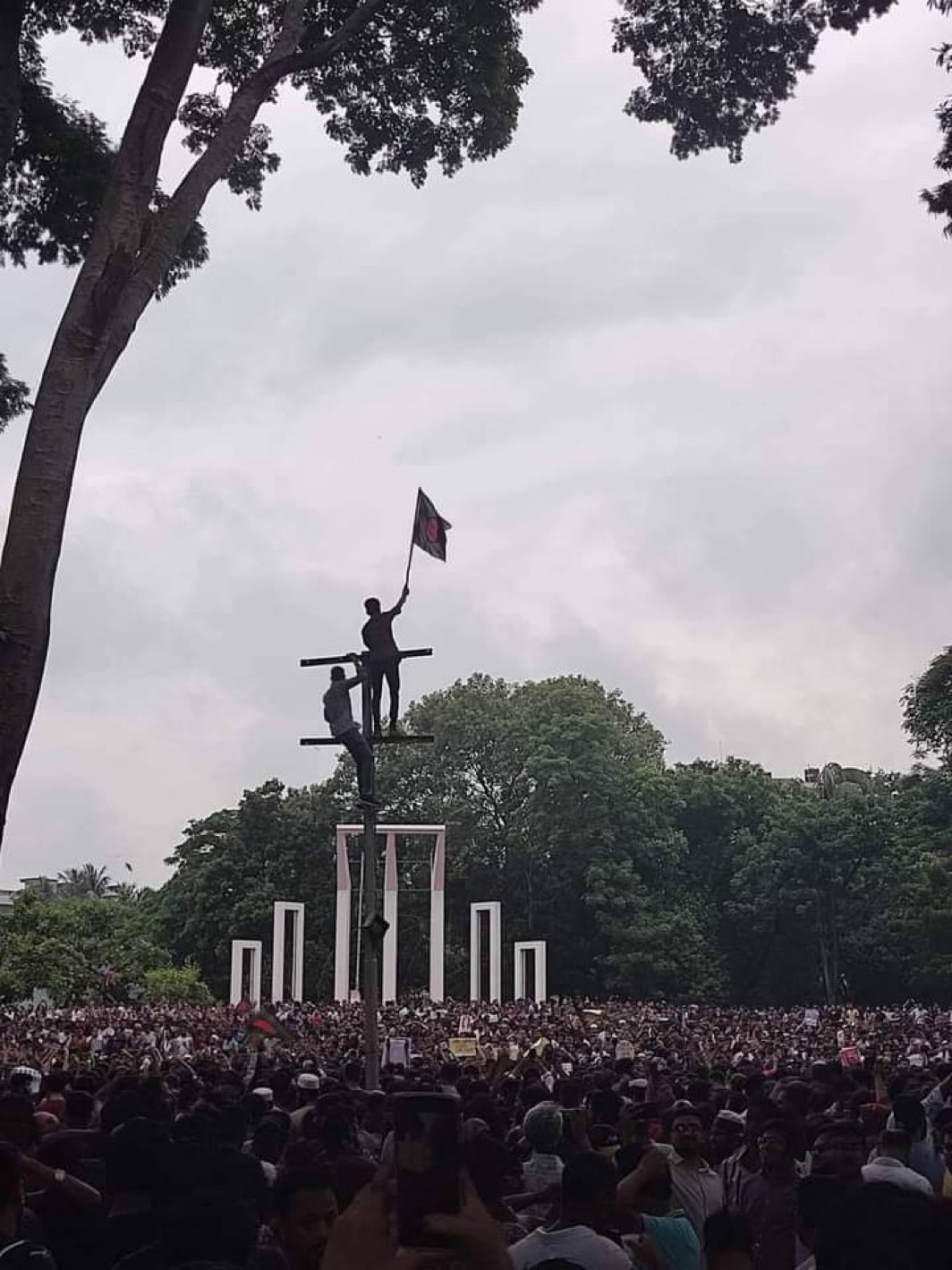
--
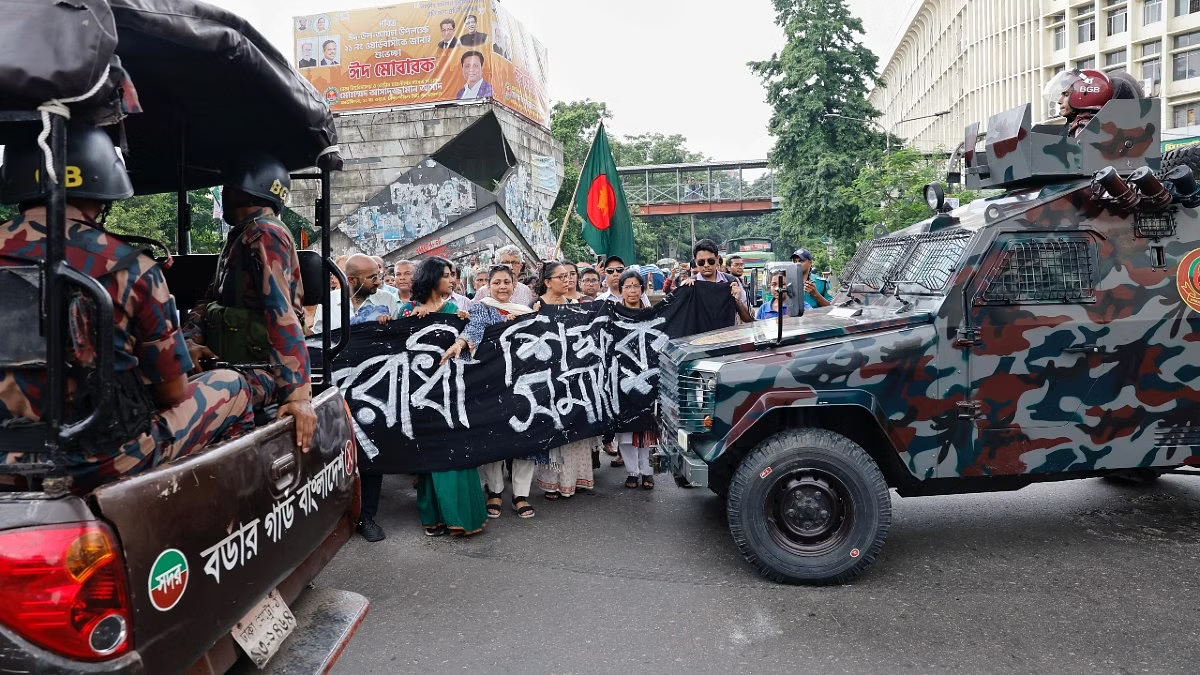
The fresh round of clashes erupted days after over 200 people were killed in violent confrontations between police and predominantly student protesters who were demanding an end to the controversial quota system that reserves 30 percent of government jobs for relatives of veterans who fought in Bangladesh's War of Independence in 1971. Since those initial clashes, more than 11,000 people have been arrested. Today's protests saw the involvement of unidentified individuals and activists from the right-wing Islami Shashontantra Andolon, who erected barricades on major highways and within the capital city. The protesters attacked police stations, ruling party offices, and leaders' residences, and set several vehicles ablaze. Authorities reported that the violent demonstrators targeted police stations and ruling party infrastructures, further escalating the already tense situation in the country.
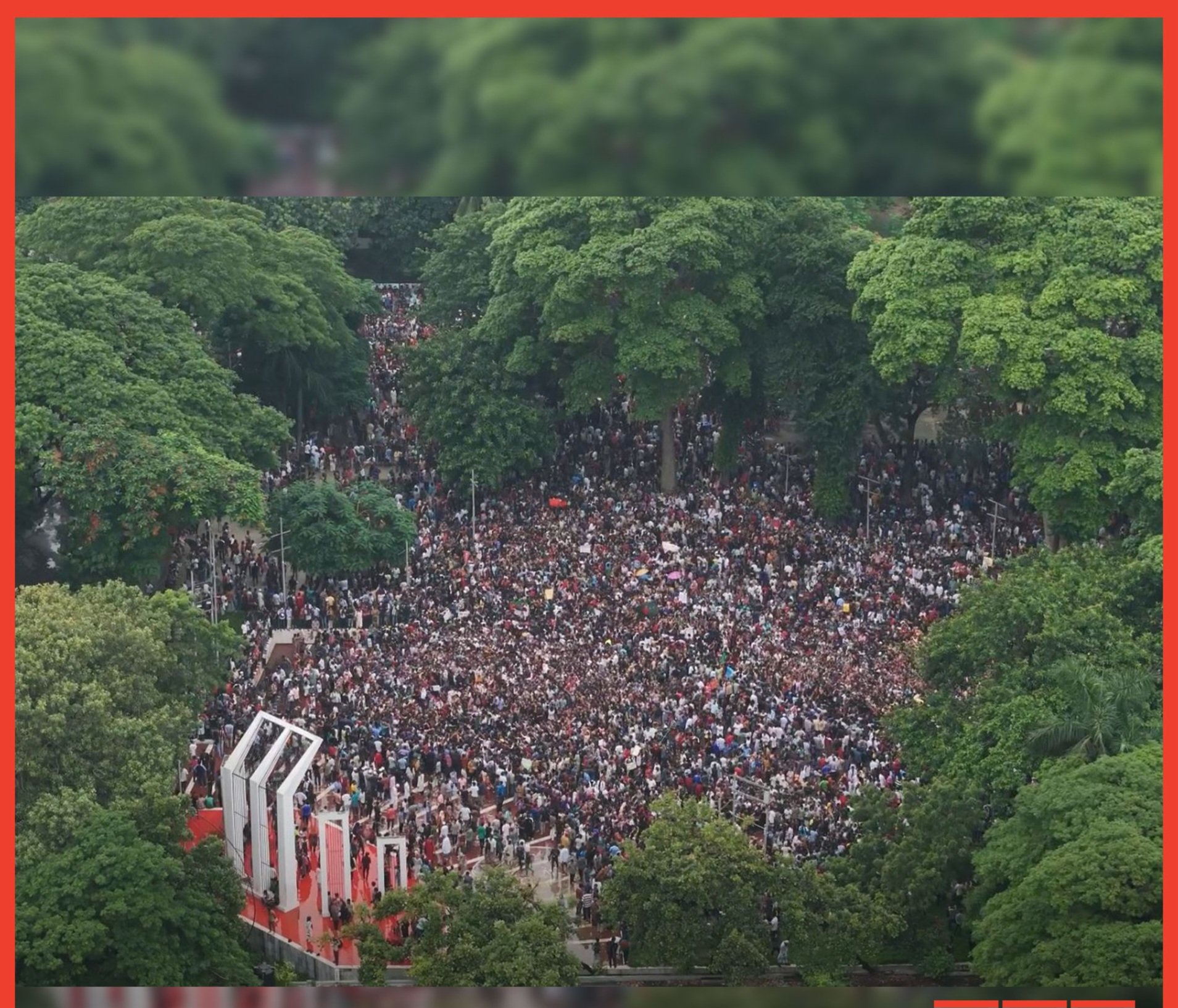
--
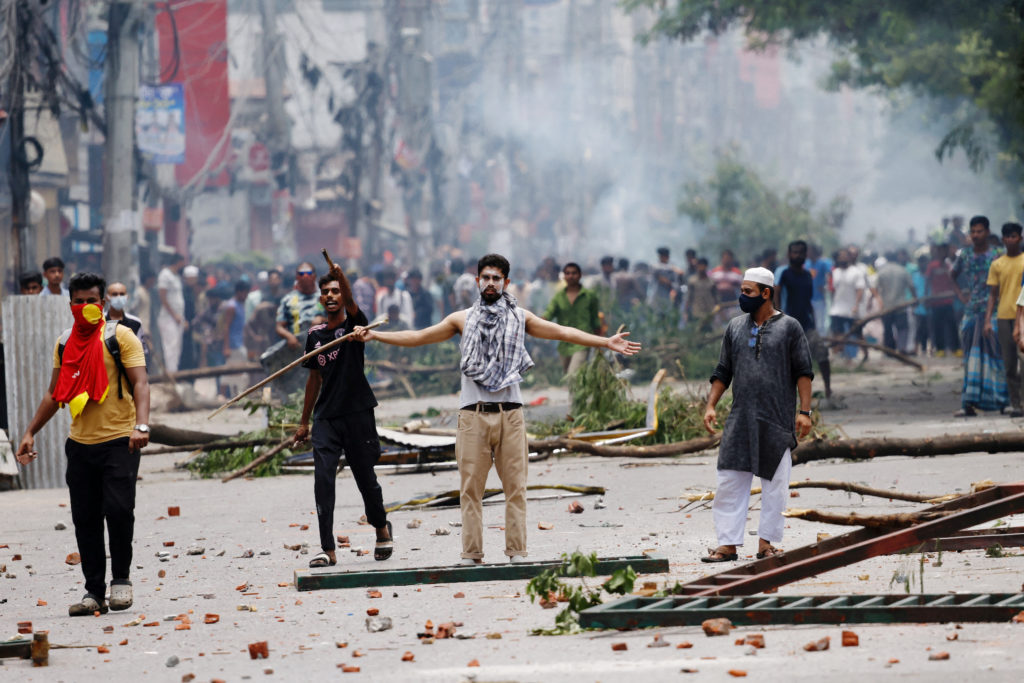
--
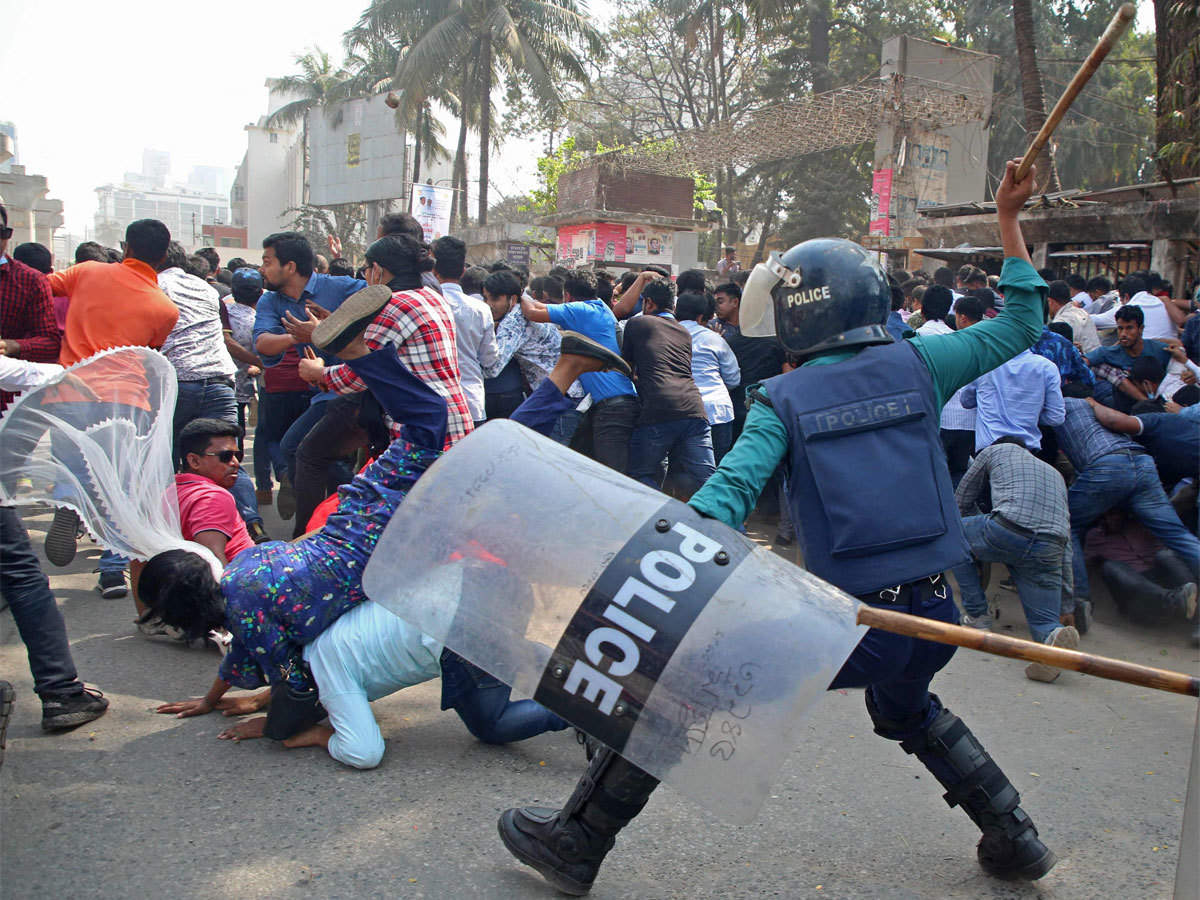
What Happened:
- Sunday Morning Clashes: The unrest began early Sunday when protesters, rallying under the banner of Students Against Discrimination, faced opposition from supporters of the Awami League, Chhatra League, and Jubo League.
- Protest Demands: The protesters were demanding the resignation of Prime Minister Sheikh Hasina, citing grievances over a controversial job quota system.
- Violent Confrontations: The situation quickly escalated into violent confrontations between the two groups, resulting in numerous fatalities and injuries.
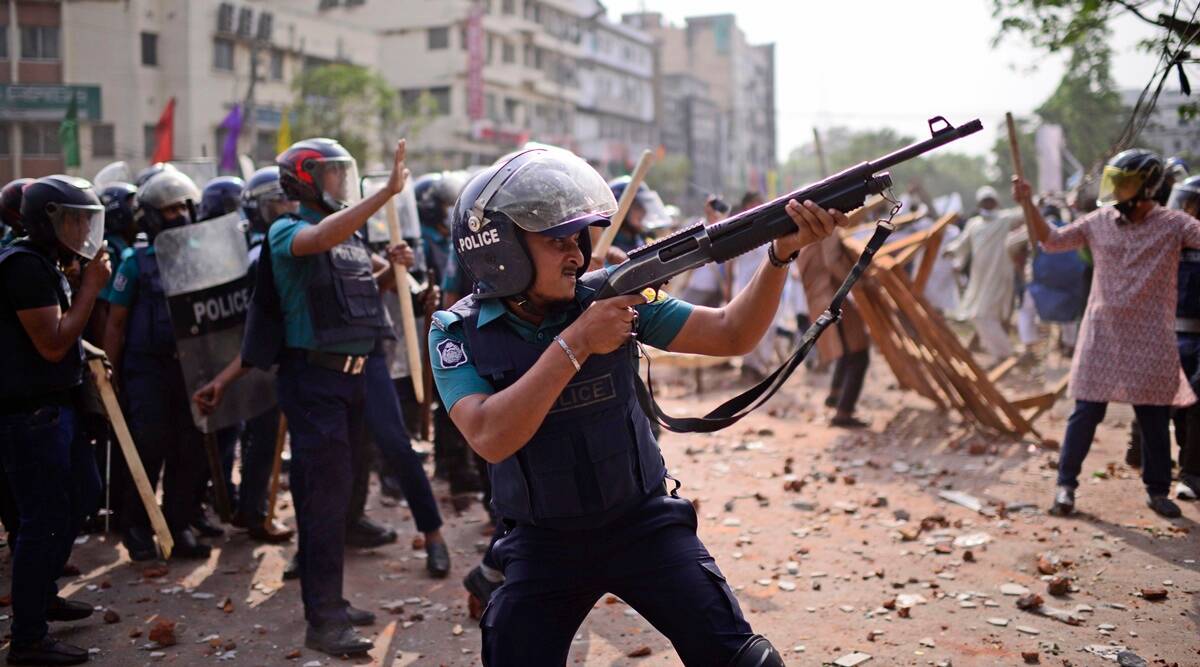
Government Response:
- Mobile Internet Shutdown: To control the spread of information and curb further violence, authorities have cut off mobile internet services across the country.
- Nationwide Curfew: A nationwide curfew has been enforced indefinitely to restore order and prevent further clashes.
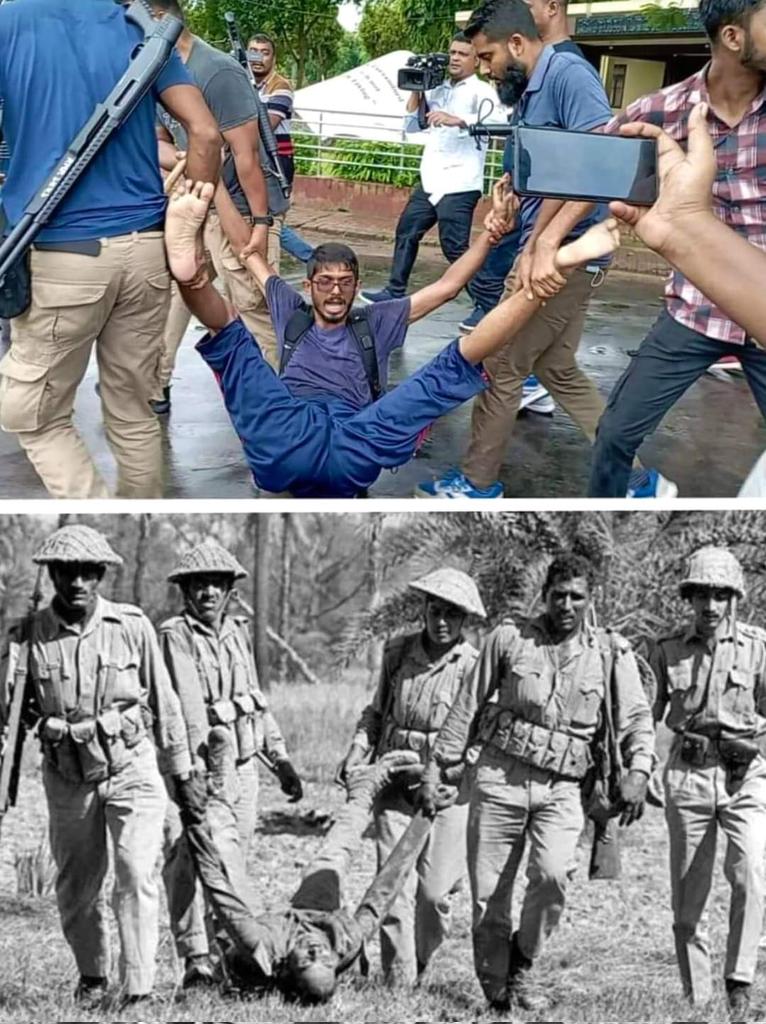
--
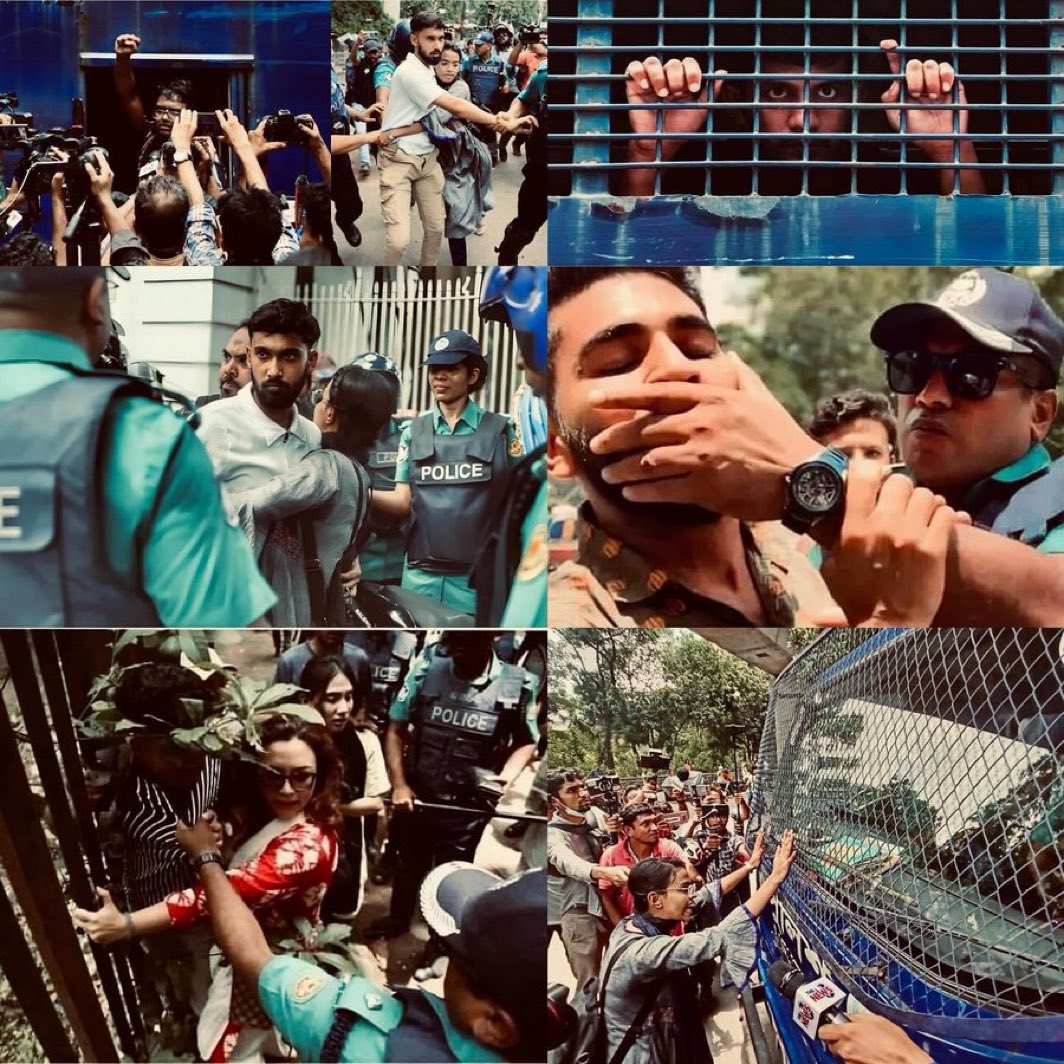
Heavy Civilan Casualties:
- Deaths: Over 200 people have been reported dead, including 14 police officers who were caught in the violence.
- Injuries: Hundreds of individuals have sustained injuries in the clashes, with hospitals across the region overwhelmed by the influx of patients.
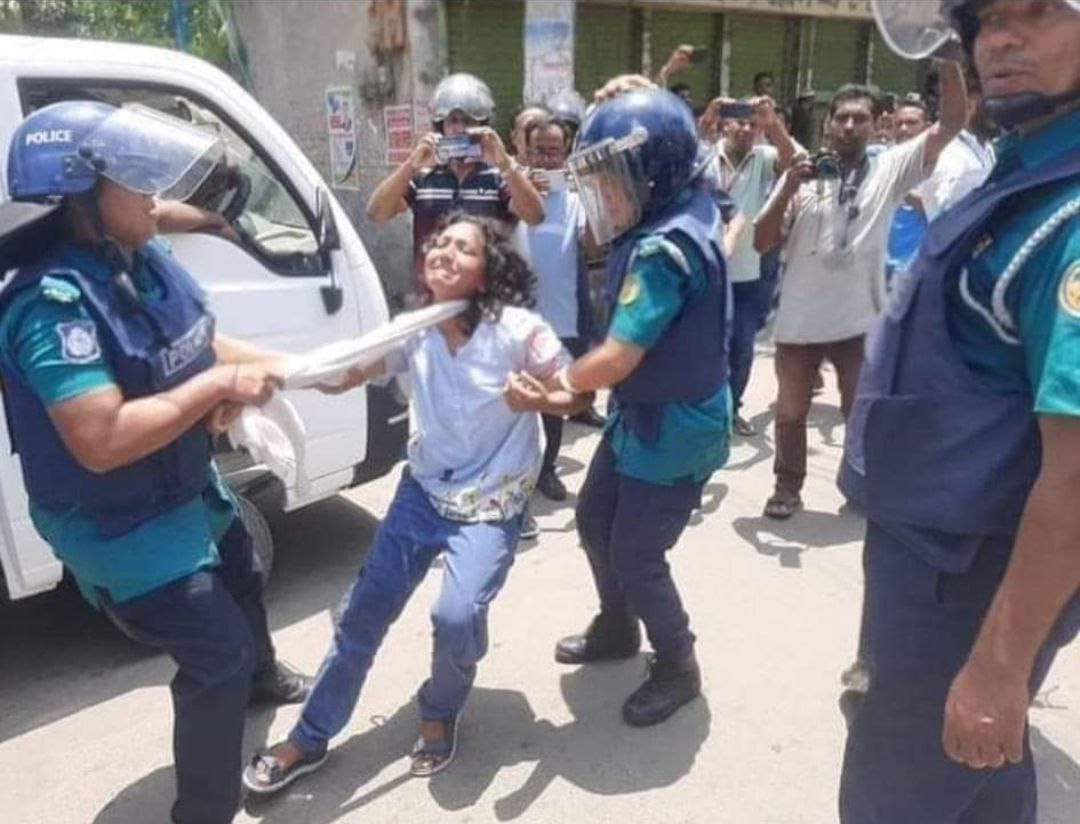
--
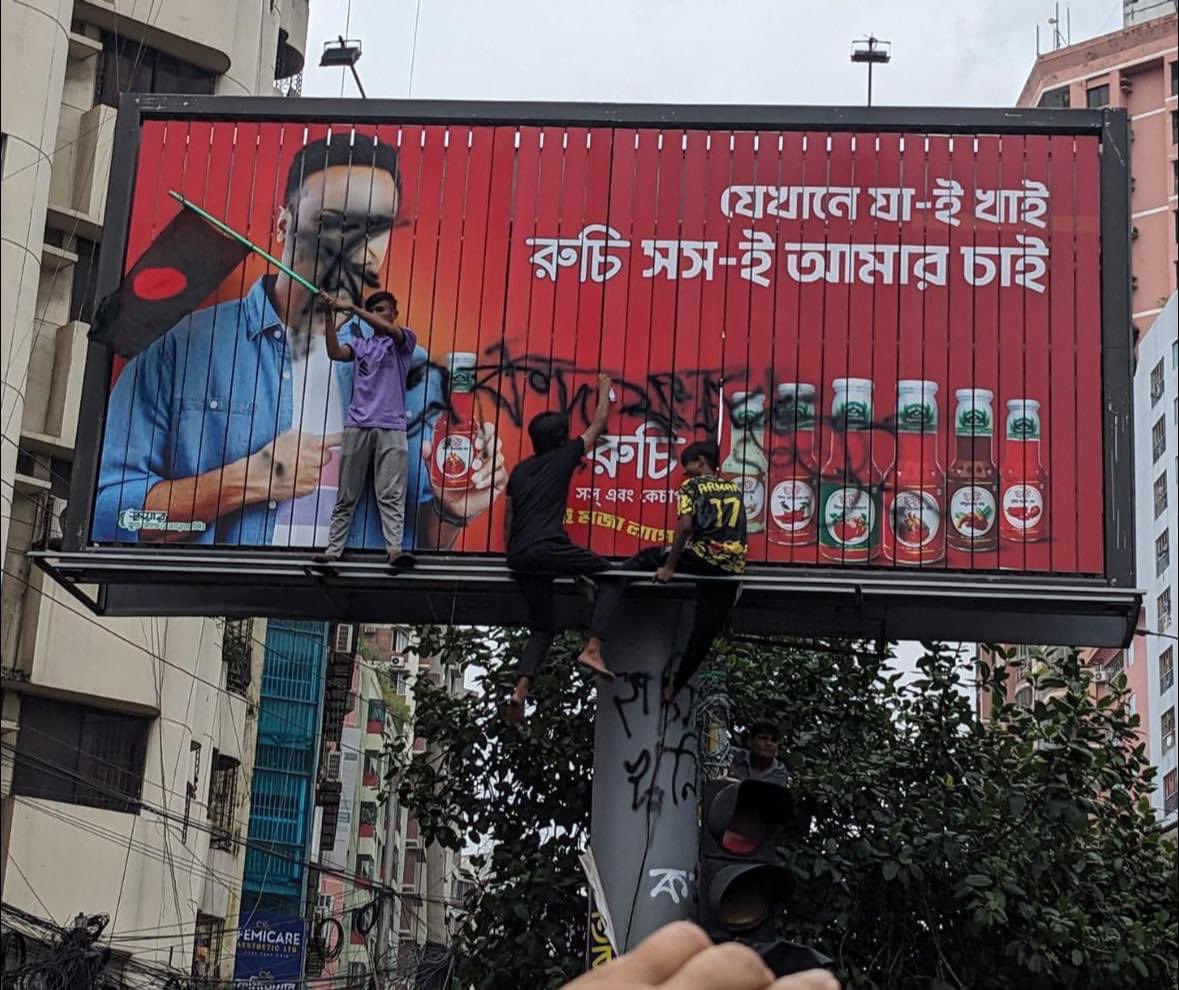
Current Situation:
- Tension Remains High: Despite the curfew and internet shutdown, tensions remain high in various parts of the country.
- Calls for Calm: Government officials and community leaders are urging calm and restraint to prevent further violence.
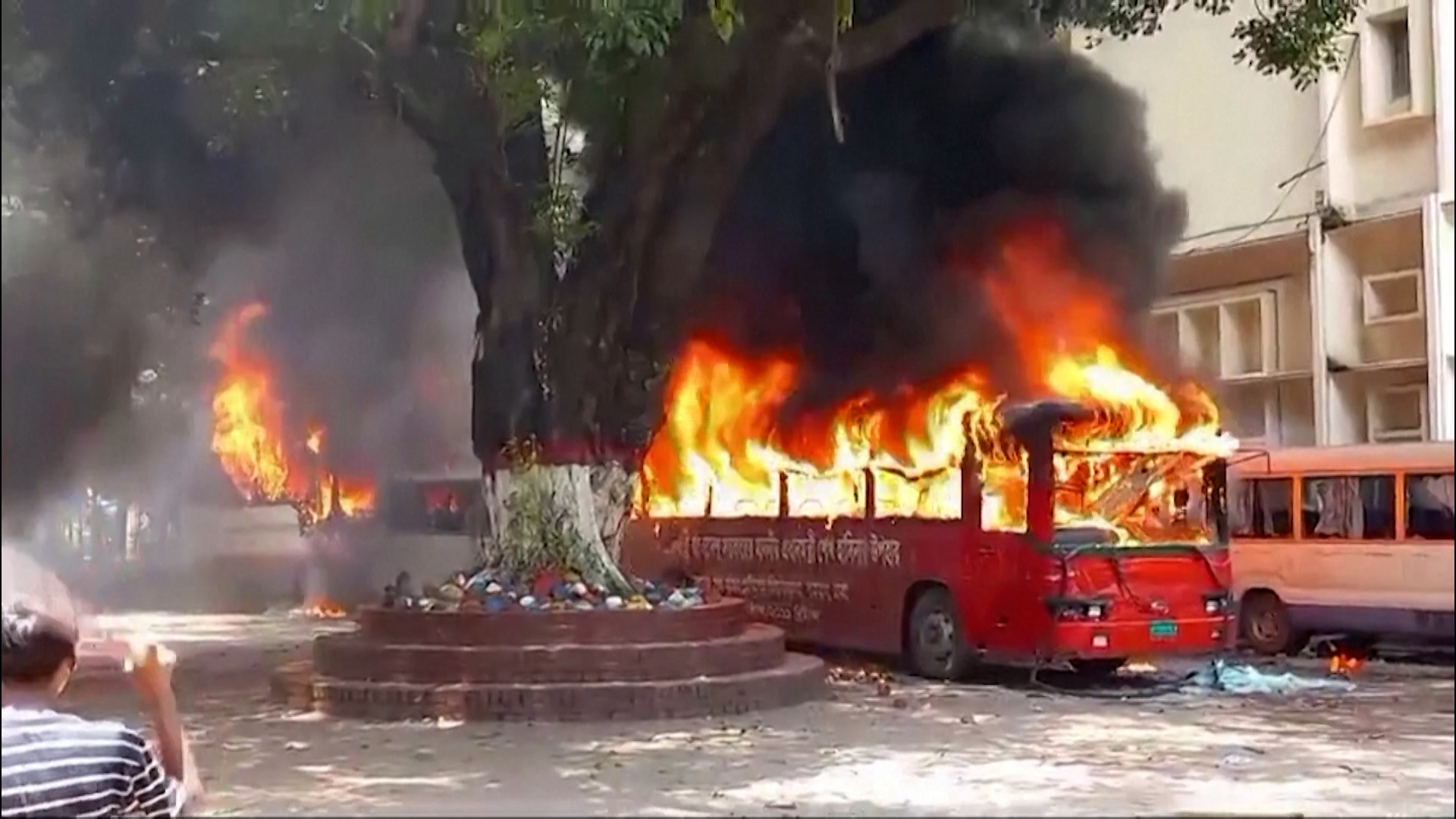
Bangladesh Civil War: Hundreds of Students Shot Dead as Sheikh Hasina Fails a Nation
In a tragic escalation of violence, hundreds of students have been shot dead as Bangladesh descends into chaos under the leadership of Prime Minister Sheikh Hasina. The fresh round of clashes erupted just days after over 200 people were killed in violent confrontations between police and predominantly student protesters. These protests, initially sparked by demands to end the controversial quota system that reserves 30 percent of government jobs for relatives of veterans from Bangladesh's War of Independence in 1971, have now spiraled out of control.
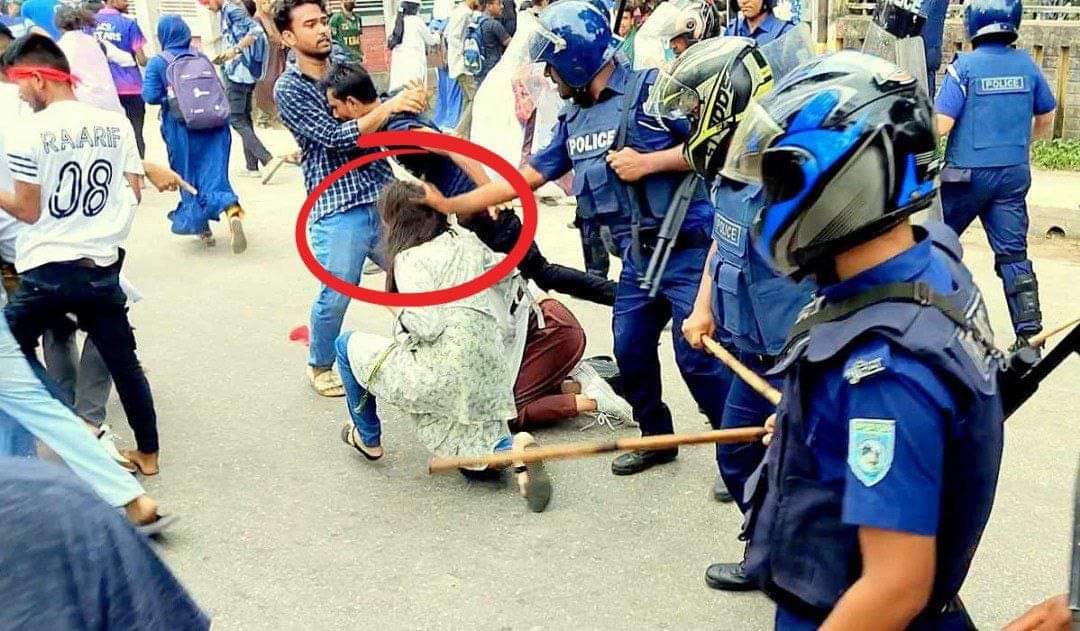
--
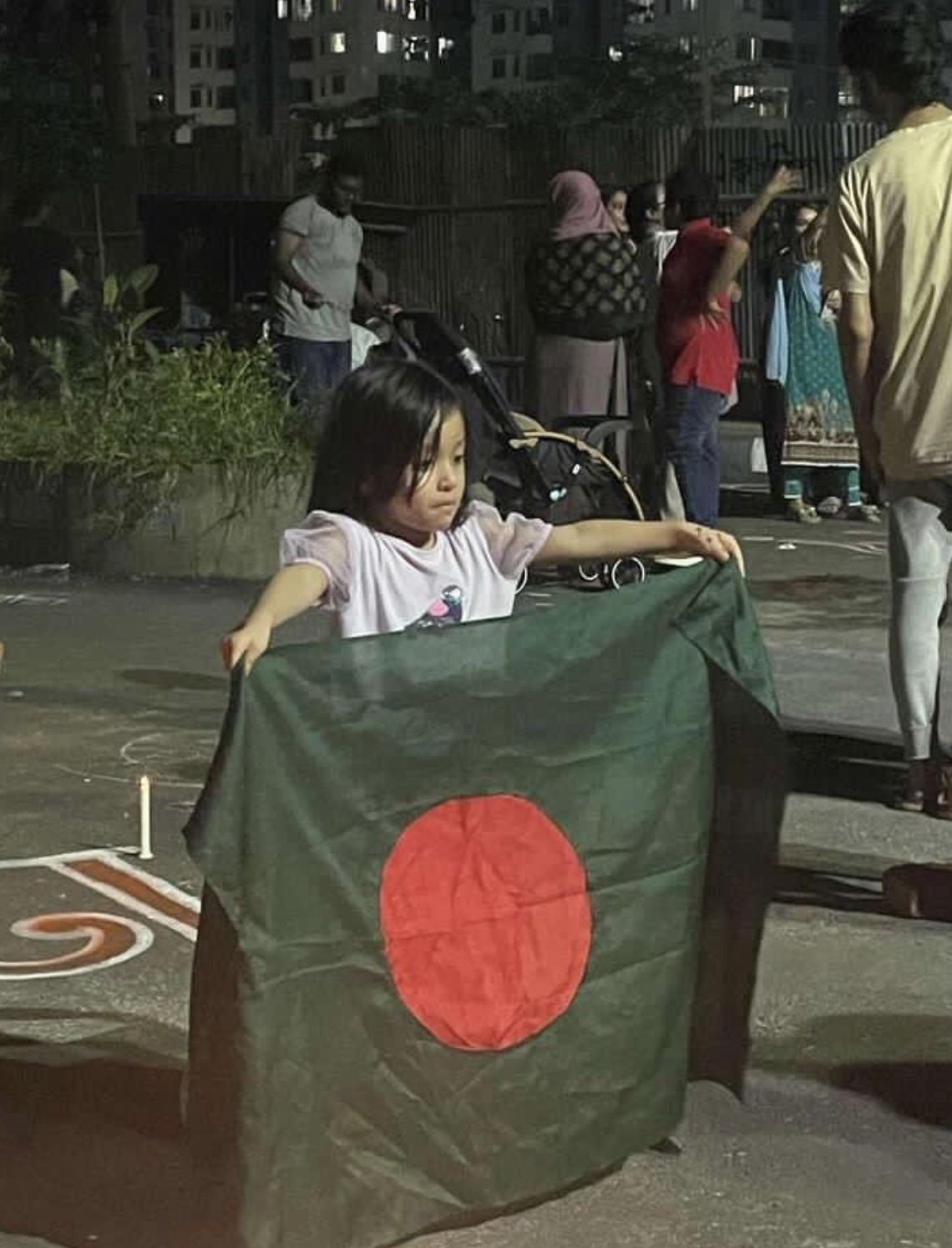
Since the initial clashes, more than 11,000 people have been arrested. Today’s protests saw unidentified individuals and activists from the right-wing Islami Shashontantra Andolon joining the fray, erecting barricades on major highways and within the capital city. Protesters targeted police stations, ruling party offices, and leaders' residences, setting several vehicles ablaze and attacking police infrastructure.
The country is now in turmoil, with authorities struggling to restore order. The death toll continues to rise, and the nation watches in despair as hopes for peace and stability fade under Sheikh Hasina's faltering leadership.
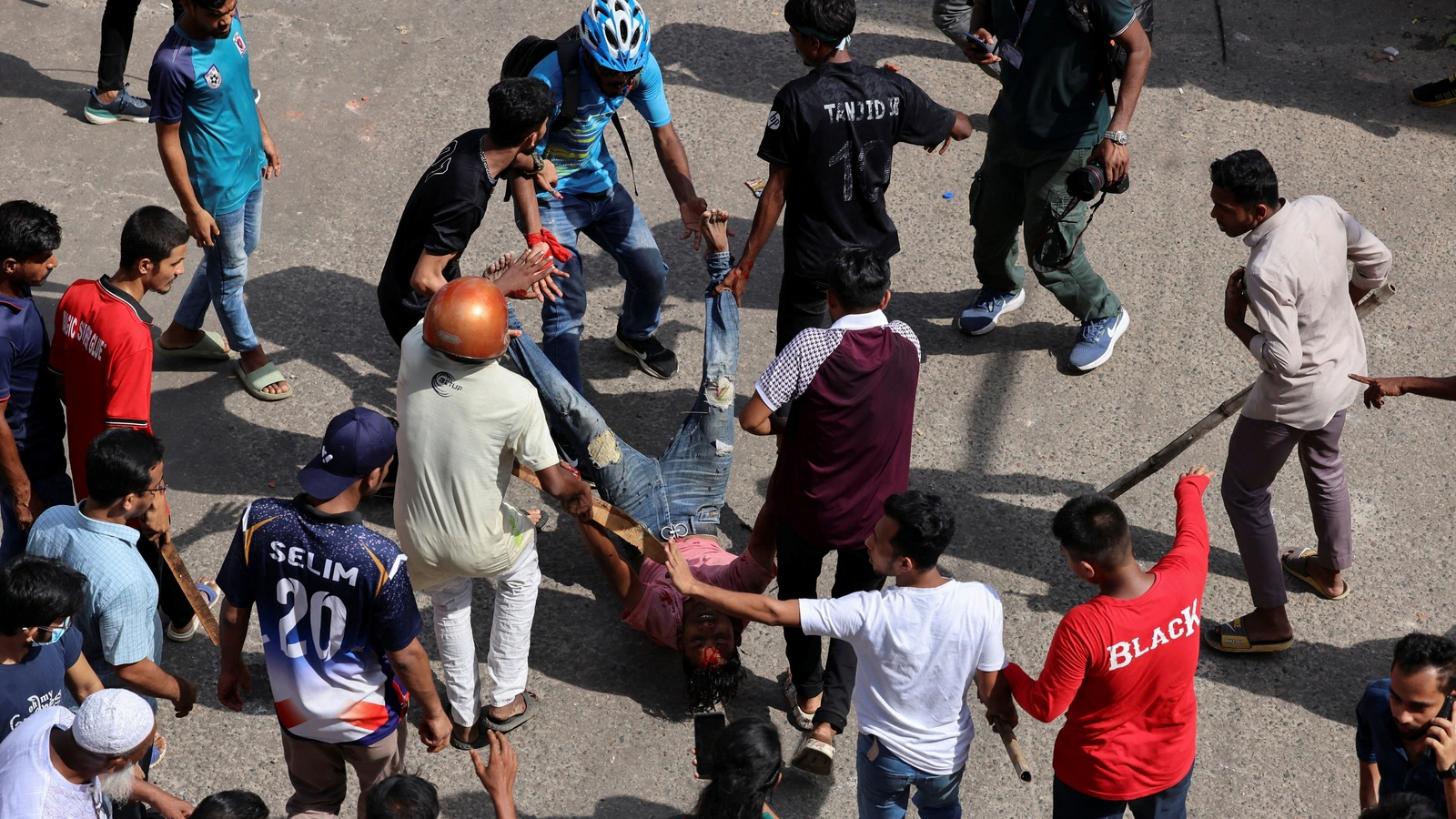
--
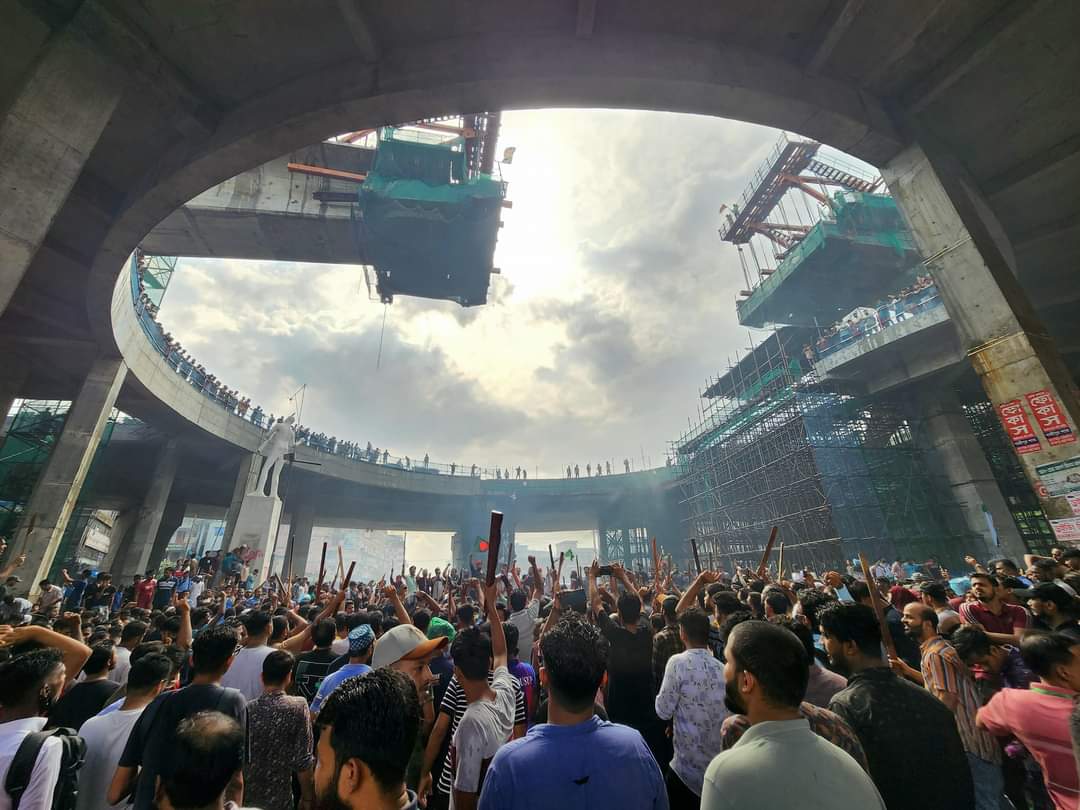
The clashes broke out when protesters attending a non-cooperation programme to demand the government's resignation faced opposition from government supporters. Tensions escalated quickly as the protesters, rallying against the administration under the banner of Students Against Discrimination, clashed with activists from the ruling Awami League, Chhatra League, and Jubo League. The situation deteriorated further as unidentified individuals and members of the right-wing Islami Shashontantra Andolon joined the protests, leading to widespread violence and chaos across major highways and the capital city. Protesters attacked police stations, ruling party offices, and leaders' residences, setting vehicles ablaze and intensifying the already volatile situation.
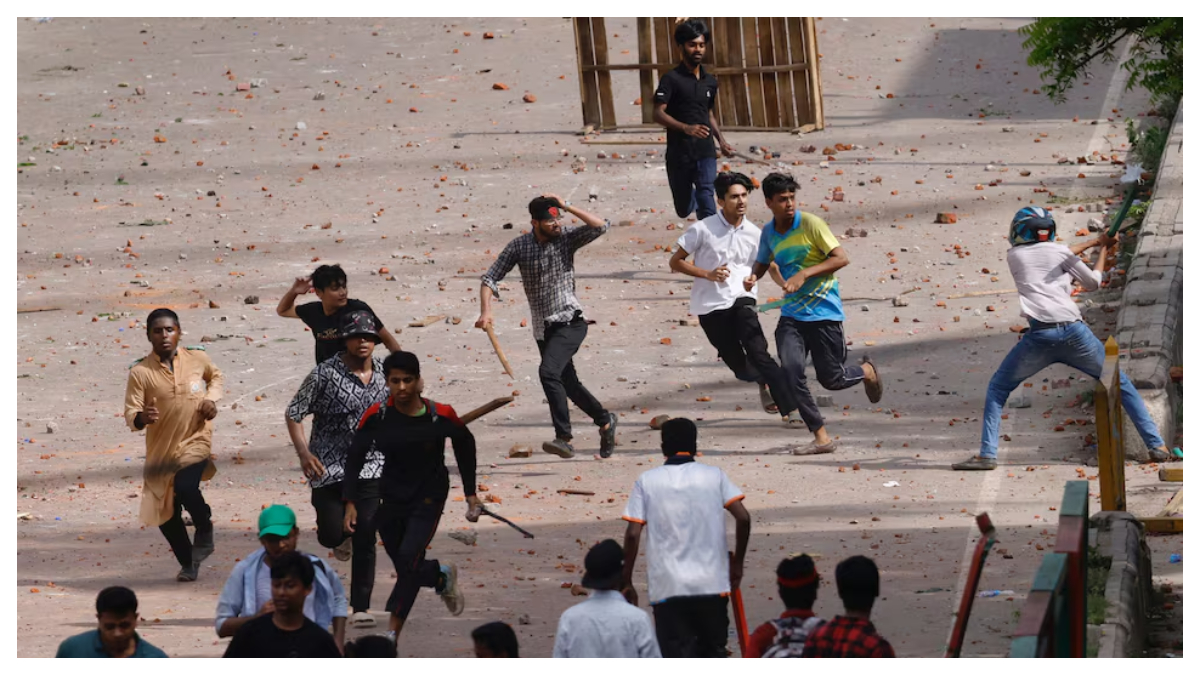
--
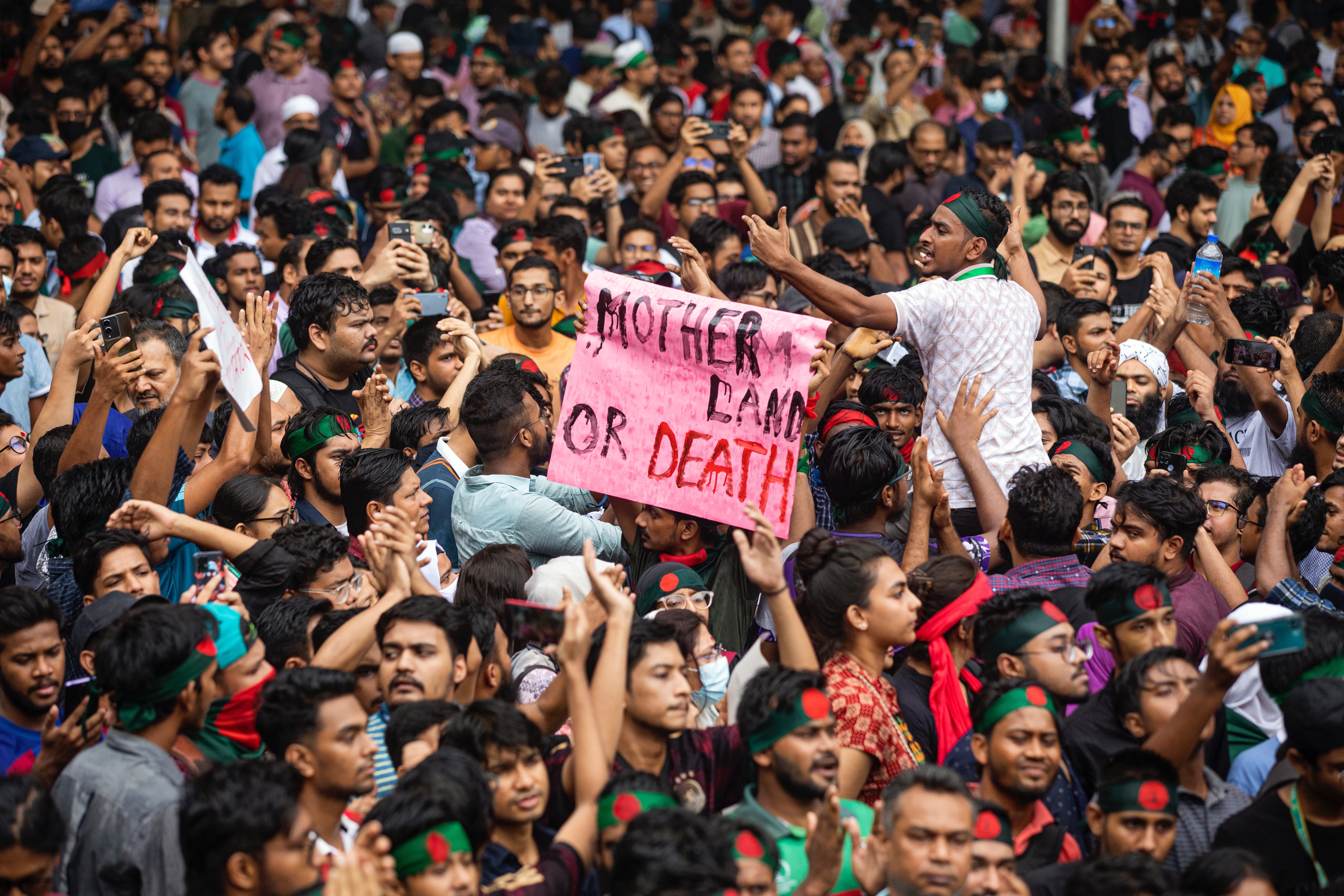
The Bangladesh Home Ministry has imposed an indefinite countrywide curfew in response to the fierce clashes that have erupted across the nation. To curb the spread of unrest, mobile internet has been tightly restricted nationwide. Additionally, a three-day general holiday has been declared for Monday, Tuesday, and Wednesday to ensure public safety amid the ongoing violent protests. This decision comes as a measure to restore order and prevent further escalation of violence.
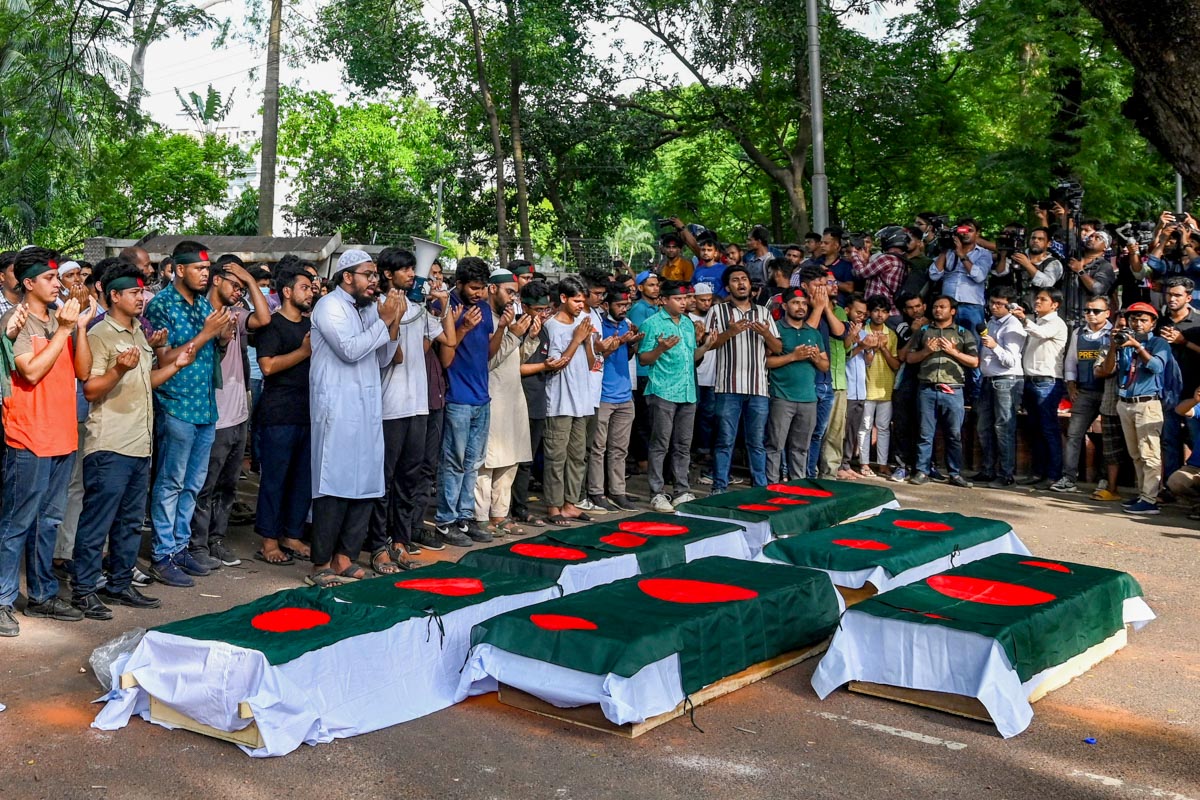
--
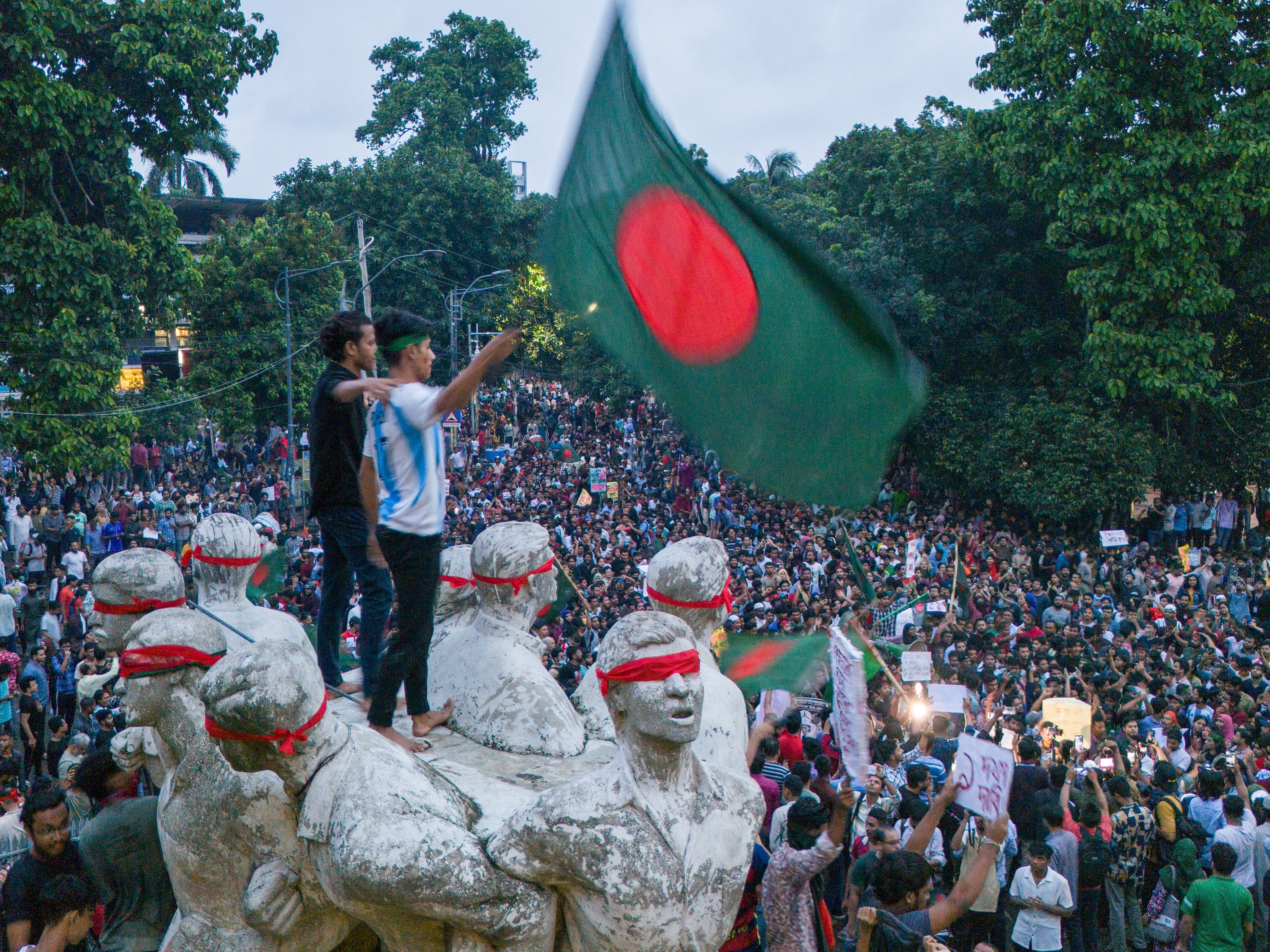
Student protesters have organized a "March to Dhaka" today to demand Prime Minister Sheikh Hasina's resignation. Analysts fear that the violence could surpass previous incidents. In response to the escalating situation, India has strongly advised all its nationals in Bangladesh to exercise "extreme caution" and restrict their movements. The Assistant High Commission of India in Sylhet issued a statement urging all Indian nationals, including students, to stay in touch with the office and remain alert. In case of emergencies, individuals are advised to contact the emergency hotline at +88-01313076402.
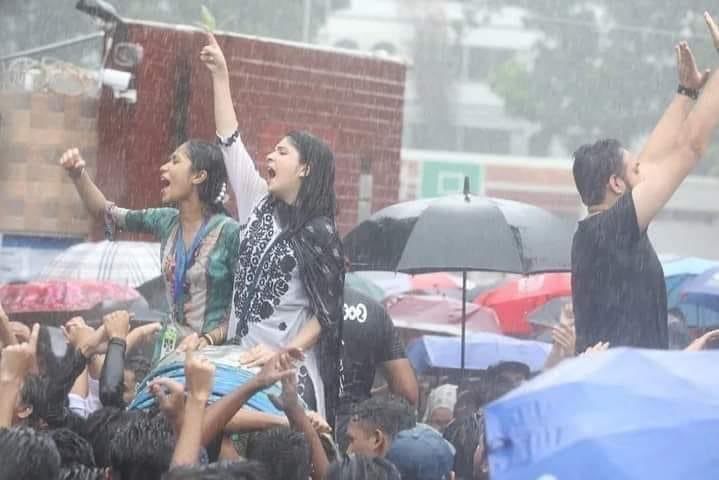
--
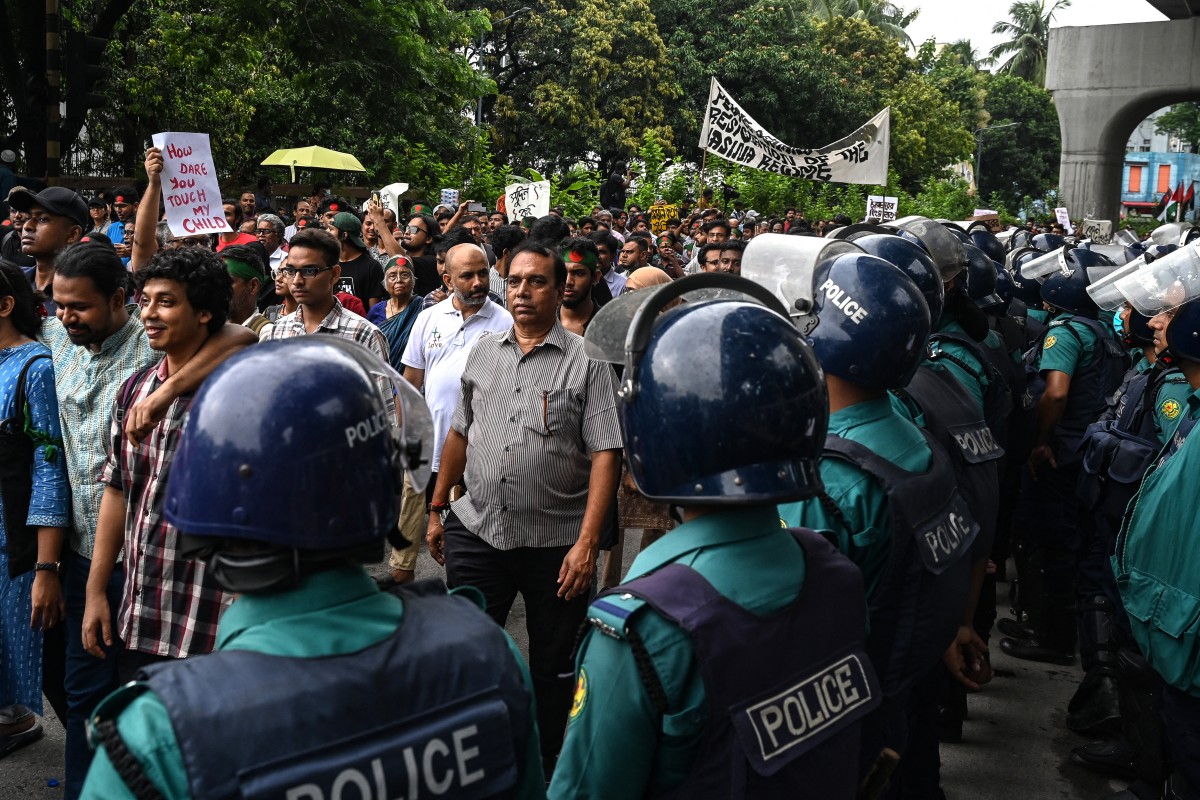
The United Nations' human rights chief, Volker Turk, has condemned the "shocking violence" in Bangladesh, calling for an immediate end to the government's targeting of peaceful protesters. The unrest, which initially began last month over civil service job quotas, has intensified into some of the most severe demonstrations of Prime Minister Sheikh Hasina's 15-year tenure. The protests have now expanded to include broader demands for the 76-year-old leader's resignation.
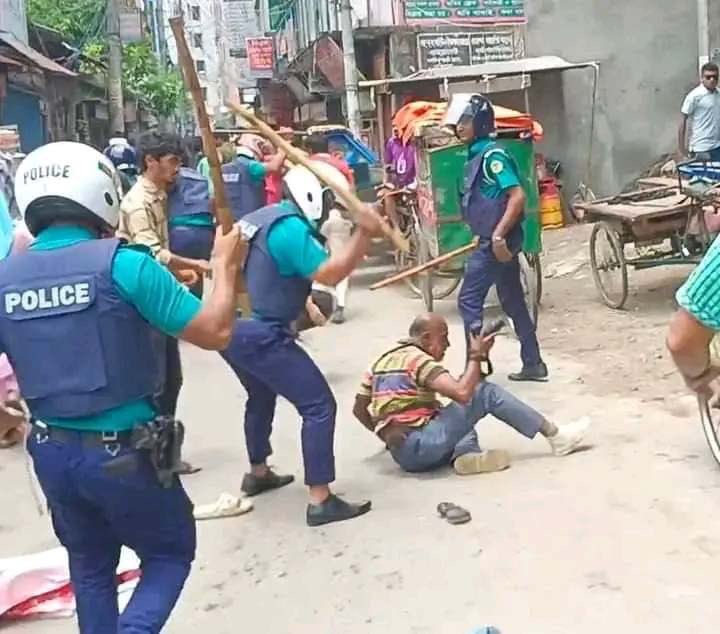
--
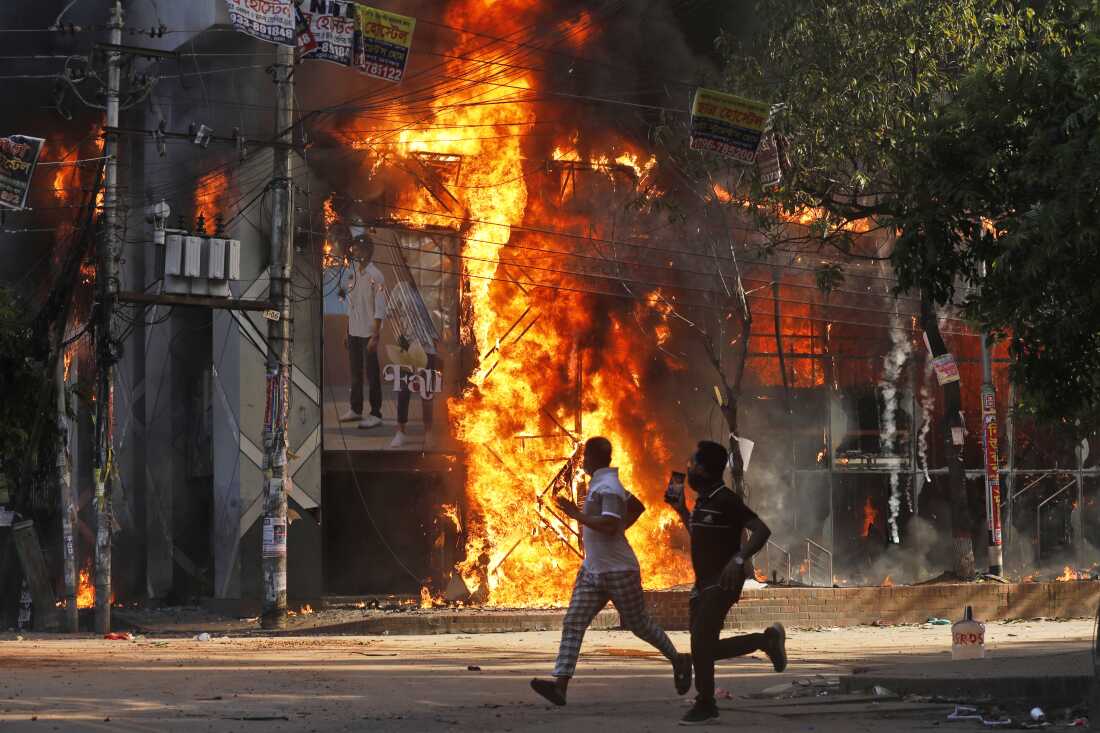
--
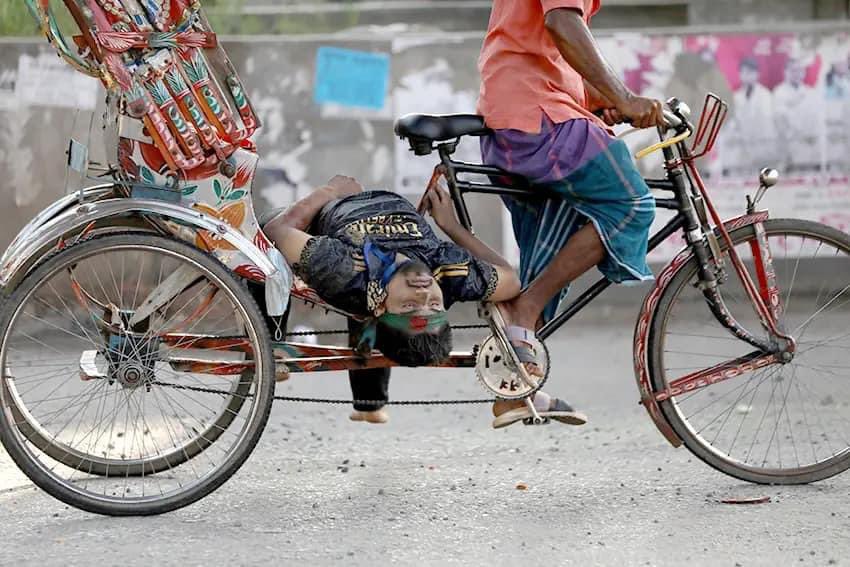
--
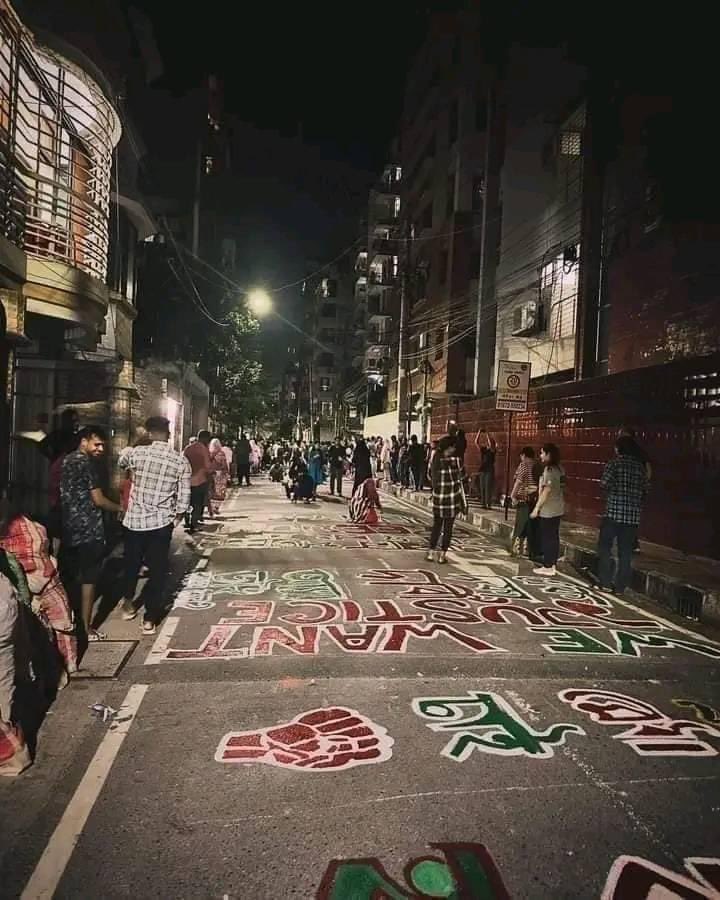
This developing story highlights the deep political and social divides in Bangladesh, with the situation continuing to evolve as authorities and citizens navigate the aftermath of the violent clashes. Stay tuned for more updates on this breaking news.
With inputs from agencies
Image Source: Multiple agencies
© Copyright 2024. All Rights Reserved Powered by Vygr Media.

